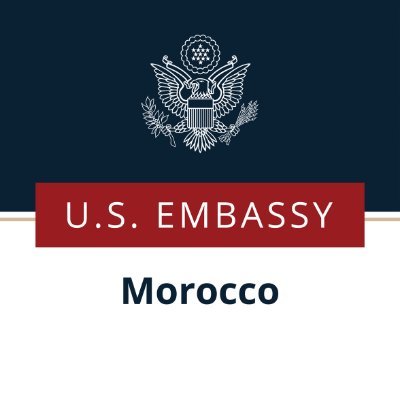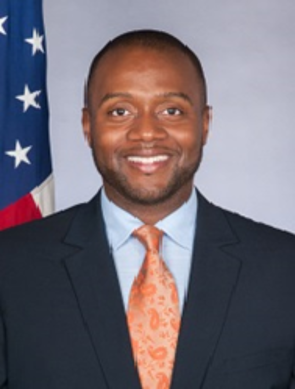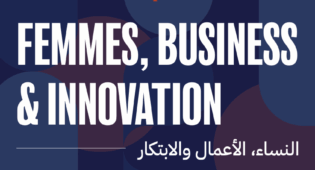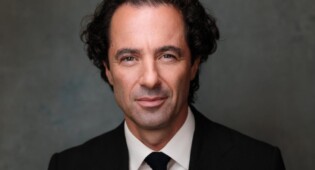
Analysis
News
Publié le : 15/03/2022
US-Moroccan relations : Conversation with Lawrence M. Randolph

A United States Diplomat since 2003, Lawrence M. Randolph last worked for the Director General of the Foreign Service. Prior to that assignment, he served as the Deputy Chief of Mission at the U.S. Embassy in Algeria. He also spent a year in Kabul, Afghanistan leading the External Affairs Unit of the Political Section responsible for reporting on Afghanistan’s relations with its neighbors, donors, and multilateral organizations. Before Afghanistan, Lawrence served as a Special Assistant in the office of both Secretary Clinton and Secretary Kerry. He also served a year as a Special Assistant in the office of the Under Secretary of State for Public Diplomacy and Public Affairs, advising the Under Secretary on public diplomacy in the Middle East and North Africa during the Arab Spring. Lawrence Randolph was appointed United States Consul General in Casablanca on January 4, 2021.
During an exclusive interview, Lawrence M. Randolph answered our questions about American-Moroccan relations.
Relations between Algeria and Morocco have been going downhill with ambassadors being recalled, borders closed, Algeria also unilaterally decided to cut off his relations with Rabat and closed the gas pipeline through Morocco. Tensions between the two neighbours crystallized following the normalization of diplomatic relations between Morocco and Israel under the Trump administration at the end of 2020 and the American recognition of the Moroccan sovereignty over Western Sahara. In the face of such renewed tensions, is there a risk of open conflict between the two countries and do you think the United States has a role to play to avoid the escalation of violence ?
Both Morocco and Algeria are valued partners, and we hope that tensions can be reduced and diplomatic relations restored. We are concerned about the risk of misunderstanding and miscalculation from all parties. Addressing the deteriorating security situation, challenges to democracy, and growing instability in the Sahel remains a U.S. priority. To this end, we are consulting privately with the parties, neighboring states, and international partners about how best to prevent further violence and achieve a lasting resolution.
The Administration’s focus is on restarting a credible political process, under Personal Envoy of the Secretary General Staffan de Mistura’s leadership, leading to an enduring and dignified resolution. To that end, you will continue to see active U.S. diplomacy in full support of the Personal Envoy’s efforts. We continue to be in touch with PESG de Mistura about how best to support his work as he currently makes his first visit to the region.
When U.S. Secretary of State Antony J. Blinken and Moroccan Foreign Minister Nasser Bourita met in Washington recently, Secretary Blinken emphasized that the longstanding U.S.-Morocco partnership is rooted in shared interests in regional peace, security, and prosperity.

The U.S. government believes that improved relations would enable both countries to better address shared bilateral and regional issues such as terrorism, illegal migration, drug trafficking, and trade integration.
We view Morocco’s autonomy plan as serious, credible, and realistic, and one potential approach to satisfy the aspirations of the people of Western Sahara.
A major poll conducted by the European Council on Foreign Relations in 12 EU member states released in September 2021 shows that most European citizens tend to agree that a new cold war is under way between the US and China. Is the growing competition between the United States and China a new geopolitical reality ?
The United States and China are competitors across many sectors – that’s a reality and has been for some time. Still, we maintain diplomatic and economic relations with China and seek to grow those relationships for global benefit – including on shared challenges such as climate change and global health security. The United States works closely with our allies and partners to ensure a fair playing field and advance our interests and values. We will continue to share information with our allies and partners, including Morocco, to address the PRC’s aggressive and – at times – coercive financial, economic, and technological practices that endanger the national security and sovereignty of our friends. The United States will continue to conduct results-oriented diplomacy with China on shared challenges.
In the absence of long-term U.S. engagement, China has emerged as Africa’s most important economic partner. Africa has never been a priority for President Donald Trump, he was the first U.S. president since Ronald Reagan not to travel to Africa. The U.S. has a long way to go to catch up to years of China’s unrivaled pursuit of the continent. How does the US plan to catch up in order to forge a real partnership and strategy with Africa? Does Washington need to rethink its approach to the continent? Does the recent tour of Blinken in Africa (with 1 billion investments announced in Dakar) announce a return of the US to the continent?
As Secretary Blinken said during his visit to the continent in November, the United States knows that, on most of the urgent challenges and opportunities we face, Africa will make the difference. We can’t achieve our goals around the world – whether that’s ending the COVID-19 pandemic, building a strong and inclusive global economy, combating the climate crisis, or revitalizing democracy and defending human rights – without the leadership of African governments, institutions, and citizens.
The United States firmly believes that it’s time to stop treating Africa as a subject of geopolitics – and start treating it as the major geopolitical player it has become.
This is one of many reasons our relationship with Morocco is so important. Morocco is a critical leader on the continent, a gateway for trade and economic opportunities and a strong supporter of regional security and stability.
We have engaged on the African continent – and Morocco in particular – for more than 200 years. Last year, we celebrated the bicentennial of the American Legation in Tangier, our oldest diplomatic mission anywhere in the world and today a cultural center and museum celebrating U.S.-Morocco friendship.
U.S. and Moroccan military officials have started planning already for African Lion, the largest military exercise in Africa, which will also include exercises in Tunisia, Senegal and Ghana this year. The 2021 exercise, which took place in June across the Kingdom, was the largest since the annual training event started in 2004, and we hope to continue our close partnership with African military partners through participation in these large-scale exercises
The U.S and the Kingdom of Morocco enjoy a close working security relationship. Morocco is an important participant in the Defeat ISIS coalition as well as UN peacekeeping missions. To further cement the security relationship, in 2020 Morocco and the U.S. signed a Roadmap for Defense Cooperation to jointly work on security initiatives over a ten-year period. As a result, the Government of Morocco is projected to spend approximately $10 billion on U.S. military equipment to modernize its forces.
In 2021, the United States celebrated fifteen years of the U.S.-Morocco Free Trade Agreement, which has led to a fivefold increase in bilateral trade since the agreement was enacted in 2006. Our countries have strong economic ties across many sectors – agriculture, automotive, aerospace, and health. We are working together to beat the pandemic as well – with the United States partnering with Morocco to provide $20 million in COVID-19 response, as well as vaccine donations. To date, we’ve donated over 2 million doses of Pfizer and Johnson & Johnson vaccines. The U.S. government is also interested in increasing investments and finance in Morocco and is building a series of exciting projects now. We have a very strong political and security relationship that is growing every year.
The Abraham Accords have been a diplomatic breakthrough for Washington and its allies in the Near and Middle East. How do you plan to capitalize on these agreements to foster a strategic alliance of Morocco in Abu Dhabi and what role should Morocco play ?
The accords signed in August of 2020 were a breakthrough that opened the door for other countries, like Morocco, to normalize relations with Israel. We enthusiastically marked the first anniversary of the Joint Declaration among Morocco, Israel, and the United States on December 22.

As the Secretary stated, normalization agreements are positive for the region as a whole. They show other countries what normalization makes possible – how it makes it easier for countries to discuss shared goals and areas of disagreement openly and constructively and pursue opportunities for mutual benefit.
We support the warming relations between our close allies, Morocco and Israel, as they move toward upgrading their respective diplomatic liaison offices to full embassies. Strengthening this relationship will create new opportunities for peace and prosperity to flourish in the region.
Strengthened Morocco-Israel ties have already created real benefits for both countries. Business ties are growing rapidly, and direct flights have started (with more to come), making it easier for hundreds of thousands of Israelis of Moroccan decent – many of whom still speak Moroccan Darija at home – to visit the land of their ancestors. We want to acknowledge King Mohammad VI’s leadership in promoting religious tolerance and harmony. He sets an example to the region and the world.
The joint declaration between the United States, Israel, and Morocco is a powerful and important declaration of the shared role we all play in maintaining and strengthening peace in the Middle East and around the world based. Our nations agreed, “We believe that the best way to address challenges is through cooperation and dialogue and that developing friendly relations among states advances the interests of lasting peace in the Middle East and around the world.” On December 22, marking one year of renewed diplomatic ties, guests heard from U.S. Secretary of State Antony J. Blinken, Israeli Foreign Minister Yair Lapid, and Foreign Minister Nasser Bourita. The restoration of diplomatic, economic, and security relations between Morocco and Israel provides many benefits to the people of both nations. Morocco and Israel have already developed a robust set of cooperation agreements including economic, environmental, technologic, and national defense. Israeli Minister of Defense Benny Gantz signed a joint security understanding agreement in November 2021 with his Moroccan counterpart Abdellatif Loudiyi, which the United States believes will allow for smoother cooperation between the two countries’ defense mechanisms and lead to greater regional security.


